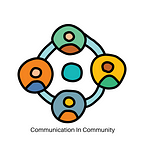Hello, my name is…
by Tajmina Khatun
“Not even going to attempt to say that” was not exactly the welcome I ever thought I’d receive when beginning my Speech and Language therapy journey. I am a visibly Muslim, brown woman with a name that reflected my identity. It’s by no means a hard name to pronounce since we are of the thought that everyone within the realms of higher education is well versed in reading and the skills that are taught to us in early primary years. I think what annoyed me was the following: I was in a well-known institution, in the most diverse city in the world, which had a student cohort that was ethnically rich and yet, I still had this person disrespect this difference of mine. She didn’t even ask, she just decided to cast it aside, my identity with it too.
I don’t know whether it was the naivety of my younger self, but I did not realise the lack of BAME representation within the Speech and Language therapy profession. My eyes scanned the lecture hall and it was quite obvious, I was one of 4 minorities in a cohort full of 76 other white women (two were men). The statistics rang true. All I kept thinking was, where did the rest go? You would think in a profession such as Speech and Language Therapy, diversity is vital. Why? Because language is multi-faceted, a myriad of history, culture and geography. Language is not just English. Language is the 7000 many languages in the world, and the speech sounds that comes with it. In English, ‘v’ is a voiced labial-dental fricative. In my mother tongue, this sound does not exist. We try to strip language from its faucets. But you can’t- everything is tightly woven together. All those things are important aspects to consider when treating a service user holistically. If we choose to ignore those things, we’re not doing our job right. That’s what I believe.
It wasn’t till I joined my postgraduate course where I was very conscious of my difference. I was the ‘other’ and I wasn’t relatable. For a long time, I held the view that perhaps I wasn’t the best fit to be a Speech and Language Therapist. That my difference would prove to be a problem in my practise. During these years, I don’t think I ever remember having a discussion relating to race and its importance throughout my time on the course. It was easy to assume that it was never important and something easily to cast aside and to leave at the door because it had no place in the SLT world. It was the elephant in the room. I was the elephant. And for a long time, I felt like I was bearing all this weight and I had to tip toe around in a space where I felt like my most authentic, truest self was not welcomed.
My drive to pursue this career was my passion for supporting communication in children as well as promoting the awareness of the SLT profession within minority communities. Yet, I didn’t stop to think that perhaps the lack of awareness of the profession could also be attributed to the lack of minority SLTs. My first placement was almost like a message from above as if to say ‘remember why you are doing this’. I remember being late on my first day and being naive about the London underground. I’m not from the city so it was easy to assume that it wasn’t going to be that bad. I was repeatedly apologetic to my practise educator. I had to in order to stay in her good books right? She led me straight into my first therapy session where a little boy was building a tower silently and his mother, dressed in beige tones with a hijab to match. My hijab was never a source of discomfort for me, but a discomfort for those who did not understand it. At the exact same time, we both smiled at each other. Suddenly, things felt very different. My most authentic self was welcomed into this space.
I was lucky in that 2 out of my 3 placements made me see the importance of my differences and the position I have in yielding change through my practise and what I can do to contribute to ensure that things like race, culture and diversity are topics brought to the table of discussion, rather than placing it underneath it. As a profession, it is vital to adopt a culture of action rather than inaction. Inaction doesn’t breed anything besides false hope and the disappointment that follows after.
Who would even feel like they belong in a community that does that?
